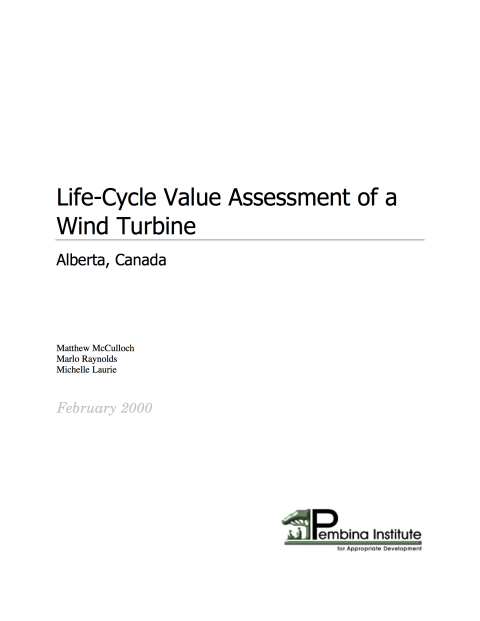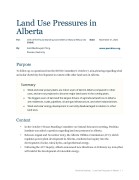Life-Cycle Value Assessment (LCVA) is a systematic method to compare the economic and environmental performance of competing products or services. An LCVA can evaluate the full cost and potential environmental impacts of a process or product from the extraction of raw materials, through production and operation, to final disposal ("cradle-to-grave"). LCVA results in a better understanding of the potential environmental impacts and costs throughout the life cycle, leading to opportunities to improve design and make more environmentally and economically sound decisions.
This paper quantifies and compares the environmental life-cycle performance of wind power with conventional electricity sources in Alberta. Total emissions of greenhouse gases, acid rain precursors, and ground level ozone precursors were considered for the following stages of each option: extraction of raw materials; transportation; and energy use. Maintenance is considered for the wind option only. Potentially available greenhouse gas credits are calculated in this analysis. The LCVA concludes that wind power in Alberta results in significant environmental benefits over conventional fossil fuel power. A potential 98.9 percent reduction in greenhouse gases per unit of electricity delivered is achieved. As well, a minimum of 98.7 percent and 98.5 percent reduction in acid rain and ground level ozone precursors, respectively, was found in choosing wind-generated electricity over the other options.







